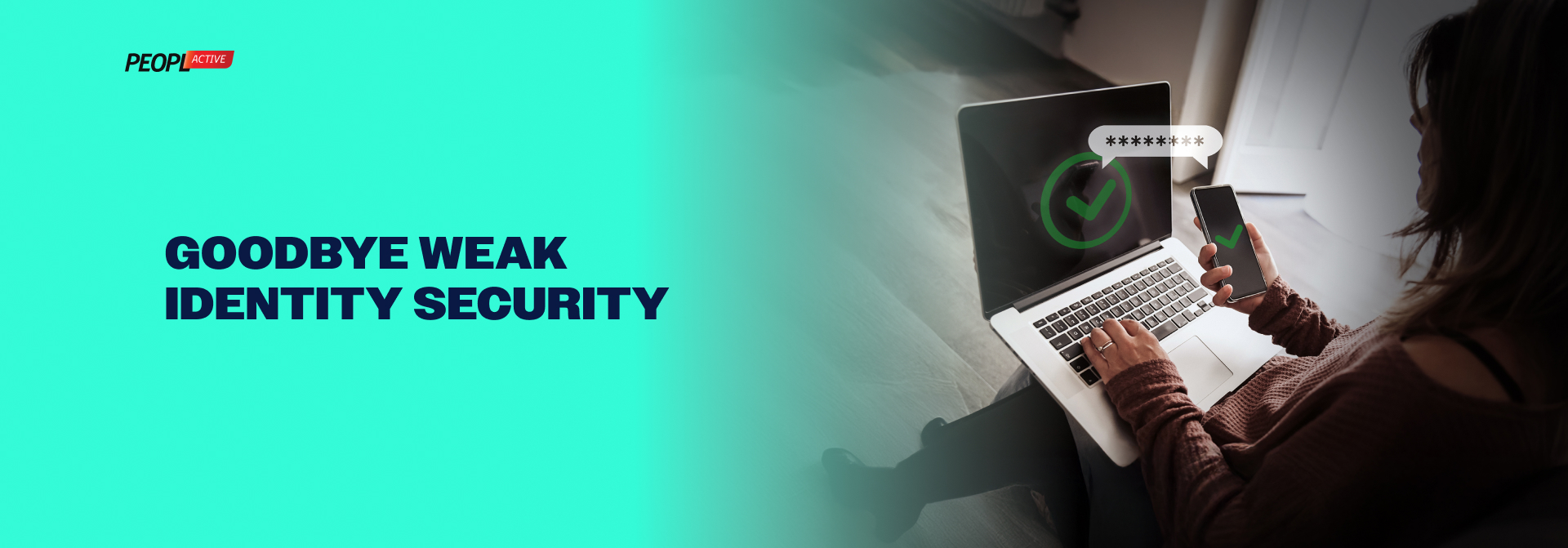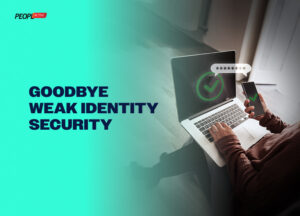Goodbye Weak Identity Security: Why UK Businesses Must Act Now
Identity-based cyber attacks are surging across the UK, with credential-based breaches now costing organisations an average of £3.5 million per incident. The alarming reality is that 81% of data breaches involve compromised credentials, yet many British businesses continue to rely on outdated password-based security systems that leave them vulnerable to sophisticated attacks.
As cyber criminals become increasingly adept at exploiting weak identity controls, organisations face mounting pressure to transform their security posture. The hidden costs of identity vulnerabilities extend far beyond initial breach expenses, encompassing regulatory fines, operational disruption, and lasting reputational damage that can devastate business growth.
The Growing Identity Security Crisis Facing UK Businesses
Recent government statistics reveal a sobering picture of cybersecurity challenges across British enterprises. The Cyber Security Breaches Survey 2025 indicates that 50% of UK businesses experienced some form of cybersecurity breach or attack in the past 12 months, with identity-related incidents representing the most common attack vector.
Poor password practices remain endemic across organisations of all sizes. Research shows that 65% of employees reuse passwords across multiple work accounts, whilst 23% use passwords containing easily guessable personal information. These vulnerabilities create cascading risks that can compromise entire network infrastructures through a single compromised credential.
“Identity security is the foundation of modern cybersecurity. Without proper controls, organisations are essentially leaving their front door wide open to attackers.” – Industry cybersecurity expert
The financial implications are staggering. IBM’s latest data breach report demonstrates that credential-based attacks cost organisations 25% more than the global average breach cost, with identity-related incidents taking an average of 327 days to identify and contain.
Core Identity Vulnerabilities Discovered Through Security Assessments
Professional gap assessments consistently reveal recurring identity security weaknesses across UK organisations. Multi-factor authentication (MFA) implementations often contain critical gaps, with Microsoft research indicating that properly configured MFA can prevent 99.9% of automated attacks, yet deployment remains inconsistent across many enterprises.
| Common Identity Vulnerability | Prevalence in UK Businesses | Potential Impact |
|---|---|---|
| Weak password policies | 73% | High – Complete account compromise |
| Incomplete MFA coverage | 68% | High – Bypass of primary security controls |
| Privileged access mismanagement | 61% | Critical – Full system compromise |
| Legacy system integration gaps | 55% | Medium – Partial security bypass |
| Social engineering susceptibility | 49% | High – Credential theft |
Privileged access management represents another critical weakness discovered during cybersecurity assessments. Many organisations lack comprehensive visibility into who has administrative access across their systems, creating opportunities for both external attackers and insider threats to exploit elevated permissions.
Social engineering attacks targeting user credentials have become increasingly sophisticated, exploiting human psychology rather than technical vulnerabilities. Security awareness training gaps leave employees vulnerable to phishing attacks, with 32% of data breaches involving social engineering tactics according to recent industry analysis.
Professional Assessment Methodologies for Identity Security
Comprehensive cybersecurity risk assessments employ multiple methodologies to evaluate identity security posture effectively. These assessments combine automated scanning tools with manual testing techniques to identify vulnerabilities that purely technological solutions might miss.
- Automated identity infrastructure scanning to identify configuration weaknesses
- Manual penetration testing of authentication mechanisms and access controls
- Social engineering simulations to test human factors in identity security
- Privilege escalation testing to evaluate access control effectiveness
- Integration testing between identity systems and business applications
Vulnerability assessment and penetration testing specifically for identity systems requires specialised expertise in authentication protocols, directory services, and access management platforms. Professional assessments examine not only technical configurations but also policy enforcement and user behaviour patterns that could introduce security risks.
Selecting the Right Assessment Partner for Identity Security
Choosing appropriate cybersecurity assessment providers requires careful evaluation of their identity security expertise and track record. The best assessment companies combine deep technical knowledge with practical business understanding, ensuring recommendations align with operational requirements and budget constraints.
Key selection criteria include certification holdings, industry-specific experience, and methodology transparency. Leading VAPT companies should demonstrate expertise in modern identity frameworks including Azure Active Directory, Okta, and on-premises Active Directory environments.
“The most effective identity security assessments combine technical rigour with business context, ensuring organisations receive actionable insights rather than generic vulnerability reports.” – Cybersecurity assessment specialist
Small and medium enterprises require particular consideration when selecting assessment providers, as their limited resources demand efficient, focused testing approaches that maximise security improvement per pound invested.
Investment Analysis and Cost Considerations
Professional identity security assessments represent a strategic investment with measurable returns in risk reduction and compliance adherence. Typical vulnerability assessment costs range from £5,000 to £25,000 depending on scope and complexity, whilst the average cost of a data breach affecting UK businesses exceeds £3.1 million.
| Assessment Type | Typical Cost Range | Duration | Coverage |
|---|---|---|---|
| Basic identity audit | £3,000 – £8,000 | 1-2 weeks | Core authentication systems |
| Comprehensive VAPT | £8,000 – £20,000 | 2-4 weeks | Full identity infrastructure |
| Ongoing monitoring programme | £2,000 – £5,000/month | Continuous | Real-time threat detection |
| Compliance-focused assessment | £5,000 – £15,000 | 2-3 weeks | Regulatory requirements |
Return on investment calculations must consider both direct cost avoidance and operational efficiency improvements. Organisations implementing assessment recommendations typically see 40-60% reductions in security incidents within the first year, alongside improved employee productivity through streamlined access management processes.
Implementation and Results Management
Successful identity security assessments follow structured methodologies that ensure comprehensive coverage whilst minimising business disruption. Step-by-step execution begins with asset discovery and authentication system mapping, progressing through vulnerability identification to remediation planning.
- Pre-assessment planning and scope definition with stakeholder engagement
- Asset inventory and identity infrastructure mapping
- Automated scanning and manual testing execution
- Vulnerability validation and impact assessment
- Risk prioritisation and remediation roadmap development
Interpreting assessment results requires understanding both technical vulnerabilities and business risk context. Professional assessment providers deliver clear reporting that translates technical findings into business language, enabling informed decision-making by non-technical leadership teams.
Industry-Specific Identity Security Considerations
Different sectors face unique identity security challenges that require tailored assessment approaches. Financial institutions must comply with stringent regulatory requirements including PCI DSS and FCA guidelines, whilst healthcare organisations navigate GDPR complexities alongside patient data protection obligations.
Manufacturing and supply chain organisations increasingly face targeted attacks on industrial control systems, requiring identity security assessments that encompass both IT and operational technology environments. Professional services firms must balance client confidentiality requirements with collaborative working needs.
Retail and e-commerce businesses face particular challenges protecting customer identity data whilst maintaining seamless user experiences. Assessment approaches must evaluate both internal identity management systems and customer-facing authentication mechanisms.
Technology Integration and Assessment Methodologies
Modern identity security assessments leverage both automated tools and manual expertise to provide comprehensive security evaluation. AI-driven assessment platforms can process vast amounts of identity data to identify patterns and anomalies that might escape manual review.
However, automated tools cannot fully replace human expertise in understanding business context and identifying complex attack vectors. The most effective approaches combine technological efficiency with human insight, ensuring assessments address both technical vulnerabilities and operational realities.
| Assessment Method | Advantages | Limitations | Best Used For |
|---|---|---|---|
| Automated scanning | Fast, consistent, comprehensive coverage | Limited context understanding | Initial vulnerability discovery |
| Manual testing | Deep analysis, business context | Time-intensive, scalability limits | Complex attack simulation |
| Hybrid approach | Balanced efficiency and depth | Requires specialised expertise | Enterprise-wide assessments |
Future-Proofing Identity Security Infrastructure
Emerging technologies and evolving threat landscapes require forward-thinking approaches to identity security assessment. Zero-trust architecture principles are reshaping how organisations approach identity verification, moving away from perimeter-based security models toward continuous verification frameworks.
Cloud-native identity solutions introduce new assessment challenges, requiring expertise in cloud security models and shared responsibility frameworks. Traditional assessment methodologies must evolve to address serverless computing, containerised applications, and hybrid cloud environments.
Continuous monitoring approaches are increasingly replacing periodic assessment models, providing real-time visibility into identity security posture changes. This shift requires organisations to invest in ongoing security partnerships rather than point-in-time evaluations.
Building Resilient Identity Security Programmes
Successful identity security transformation extends beyond addressing immediate vulnerabilities to building sustainable security programmes that evolve with business needs and threat landscapes. Post-assessment implementation requires change management expertise to ensure security improvements integrate effectively with existing business processes.
Employee training and awareness programmes form critical components of comprehensive identity security strategies. Technical controls alone cannot prevent social engineering attacks or accidental security policy violations without corresponding human-focused security measures.
Regular programme review and continuous improvement processes ensure identity security measures remain effective against evolving threats whilst supporting business growth and digital transformation initiatives.



















